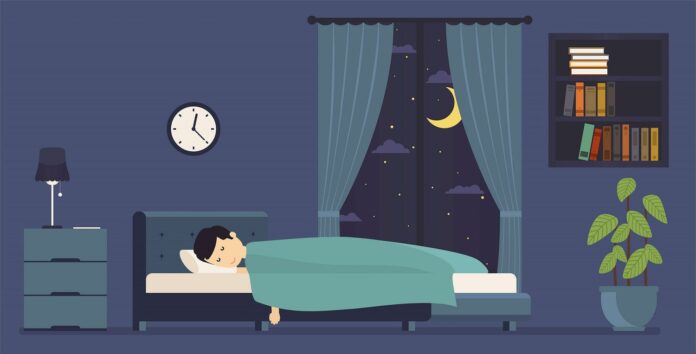Getting a good night’s sleep is essential for overall health and wellbeing. However, many people struggle with sleep quality and often wake up feeling tired and groggy. In this article, we’ll discuss some important tips to improve sleep quality and wake up feeling refreshed.
1. Establish a Regular Sleep Schedule
One of the most important things you can do to improve sleep quality is to establish a regular sleep schedule. This means going to bed and waking up at the same time every day, even on weekends. Our bodies thrive on routine, and establishing a consistent sleep schedule can help regulate our circadian rhythm, which is our body’s natural sleep-wake cycle. According to the National Sleep Foundation, “Keeping a regular sleep schedule helps regulate your body clock and could help you fall asleep more easily and feel more alert and energized during the day.”
2. Create a Relaxing Bedtime Routine
Creating a relaxing bedtime routine can help signal to your body that it’s time for sleep. This can help reduce stress and promote better sleep quality. Some ideas for a relaxing bedtime routine include taking a warm bath, practicing yoga or meditation, reading a book, or listening to calming music. According to the American Sleep Association, “A relaxing bedtime routine can help you transition from wakefulness to sleepiness and improve your sleep quality.”
3. Create a Sleep-Conducive Environment
The environment in which you sleep can have a big impact on sleep quality. Ideally, your bedroom should be cool, dark, and quiet. You may want to invest in blackout curtains, a white noise machine, or a comfortable mattress and pillows to create a more sleep-conducive environment. According to the American Academy of Sleep Medicine, “The sleep environment should be cool, quiet, comfortable, and free from interruptions or distractions.”
4. Limit Caffeine and Alcohol Consumption
Caffeine and alcohol can both negatively impact sleep quality. Caffeine is a stimulant that can keep you awake, and alcohol can disrupt the natural sleep cycle. It’s best to limit caffeine consumption, especially in the afternoon and evening, and to avoid alcohol or limit it to one drink per day. According to the Centers for Disease Control and Prevention, “Avoid consuming caffeine and alcohol close to bedtime, as these can interfere with sleep.”
5. Exercise Regularly
Regular exercise has been shown to improve sleep quality. Exercise can help reduce stress and anxiety and promote relaxation, which can lead to better sleep. Try to incorporate exercise into your daily routine, whether it’s a brisk walk, a yoga class, or a gym workout. According to the Sleep Foundation, “Exercising regularly can help you fall asleep faster and enjoy deeper sleep, as long as you don’t exercise too close to bedtime.”
6. Manage Stress and Anxiety
Stress and anxiety can both have a negative impact on sleep quality. It’s important to find ways to manage stress and anxiety, whether it’s through relaxation techniques like deep breathing or meditation, or through therapy or counseling. According to the American Sleep Association, “Stress and anxiety can interfere with your sleep, so it’s important to find ways to manage them during the day and before bedtime.”
In conclusion, there are many important tips to improve sleep quality and wake up feeling refreshed. By establishing a regular sleep schedule, creating a relaxing bedtime routine, creating a sleep-conducive environment, limiting caffeine and alcohol consumption, exercising regularly, and managing stress and anxiety, you can improve your sleep quality and overall health and wellbeing.
Sources:
“Sleep and Chronic Disease” by the Centers for Disease Control and Prevention [source]
“Healthy Sleep Tips” by the National Sleep Foundation [source]
“Sleep Hygiene: 10 Tips for Better Sleep” by the American Academy of Sleep Medicine [source]
“Exercise for Better Sleep” by the Sleep Foundation [source]
“Stress and Sleep” by the American Sleep Association [source]
Read more:
Protecting Your Skin in the Summer Heat: Skincare Tips for Glowing, Hydrated Skin



